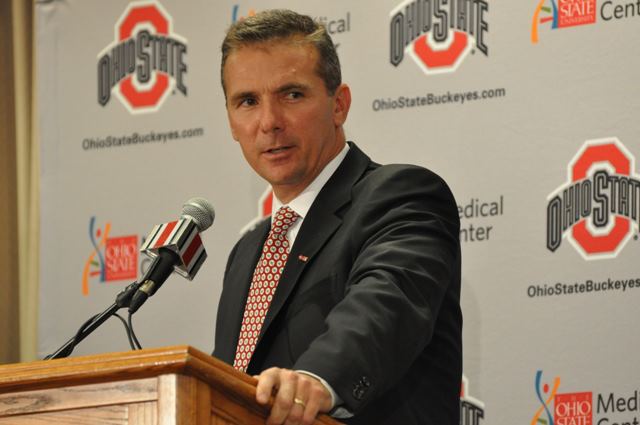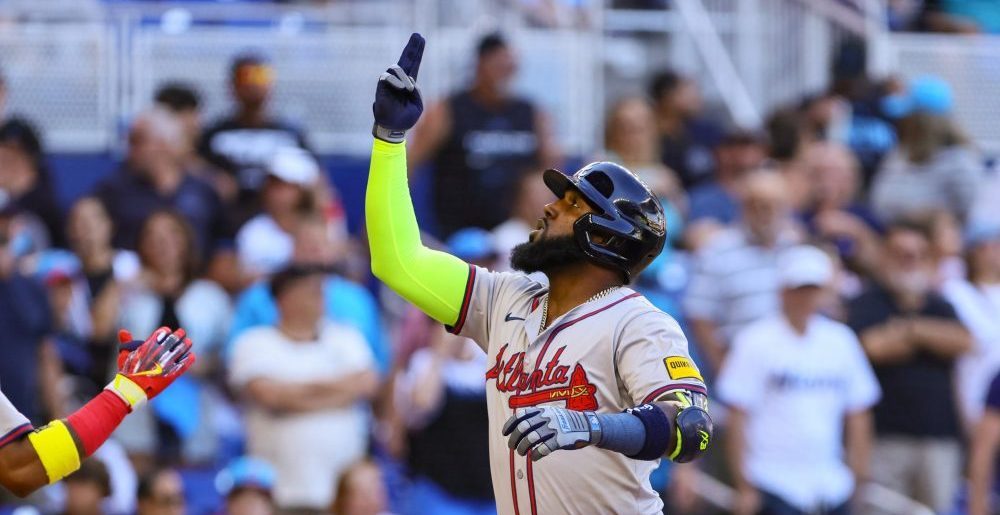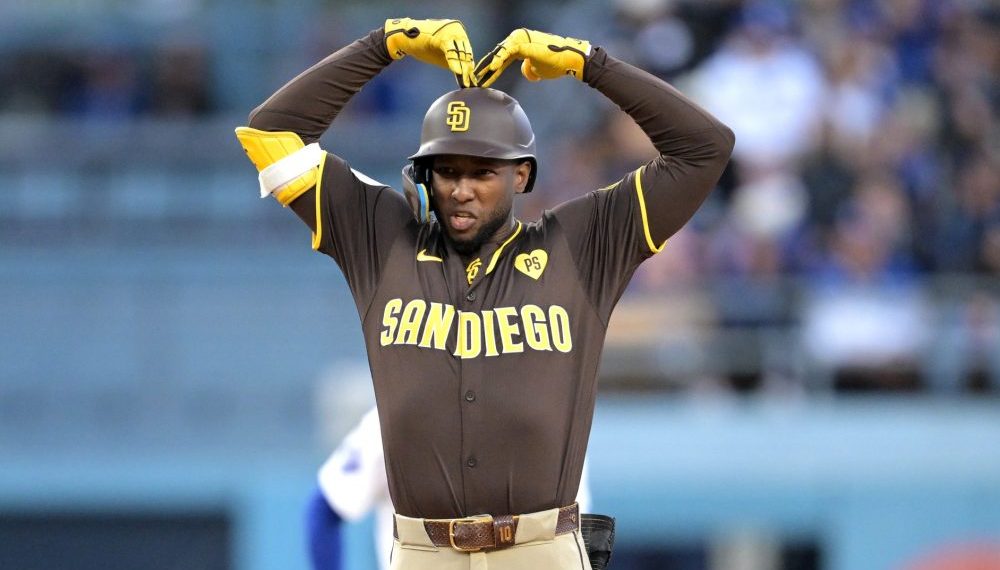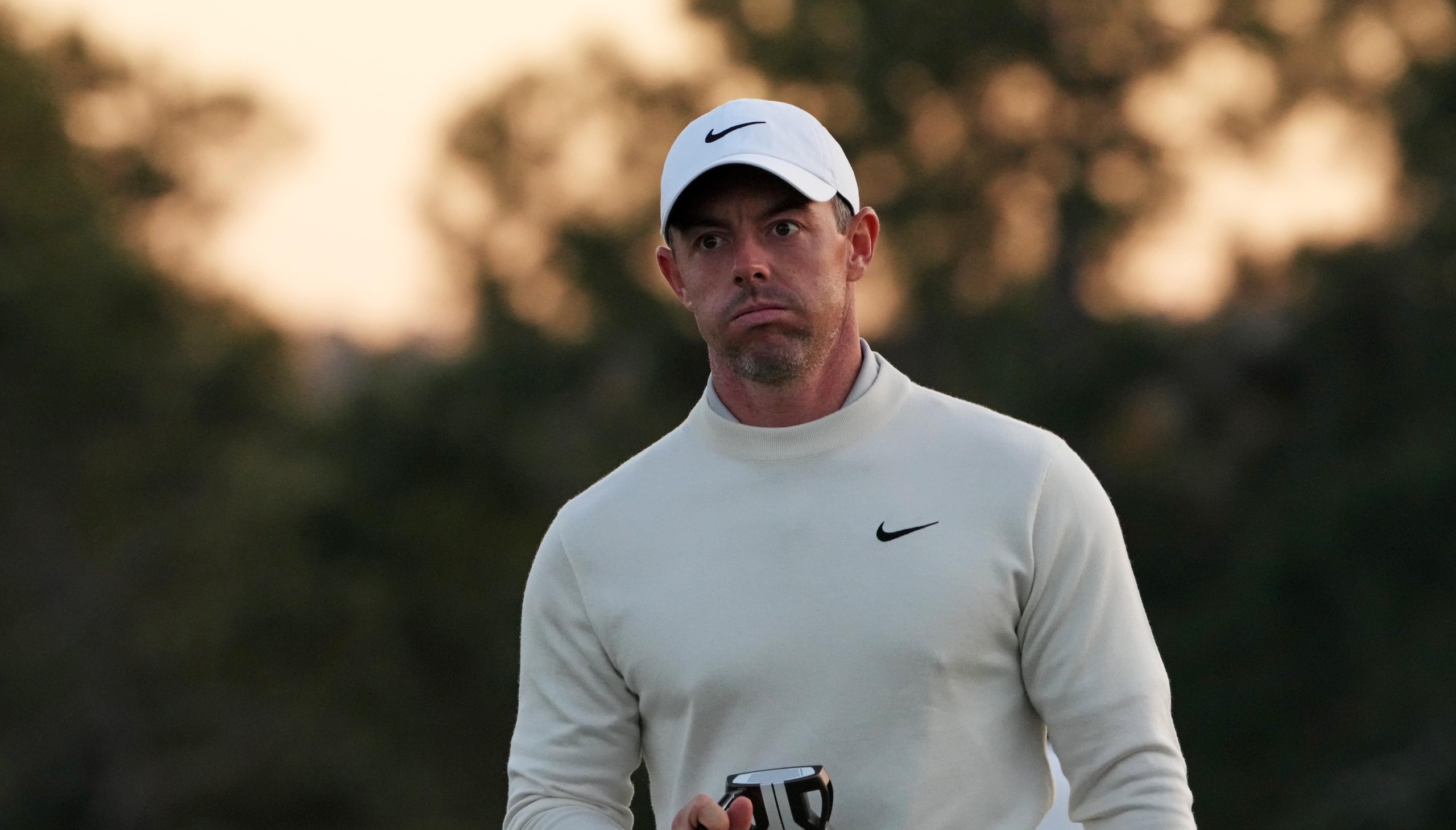
Rolling Stone published their massive expose on Aaron Hernandez today. It's a fascinating, lengthy read on a life that spiraled out of control. There are numerous intimate details about Hernandez's life including his family, drug use, and downward spiral. But there was one element in the Rolling Stone piece that didn't quite connect.
In a teaser last night, Rolling Stone published six revelations. The last revelation was less about Hernandez and more a potential indictment of his college coach – Urban Meyer.
In college his coach (then-University of Florida head coach Urban Meyer) may have helped cover up failed drug tests, along with two violent incidents — an assault and a drive-by shootout outside a local bar.
That's a pretty large, serious allegation to make… with almost no weight behind it. Meyer "may have" helped cover up failed drug tests and shootings? May have? Sure, and Urban Meyer also "may have" been the second gunman on the grassy knoll too.
When the actual piece was published today, it was revealed that Rolling Stone misfired in a needless attempt to capitalize on the cottage industry of painting Urban Meyer as a corrupt despot and it hurt the credibility of the rest of the piece as a result.
Rolling Stone's evidence that Meyer was covering up all of these acts Hernandez was linked with… check that, "may have" been covering up… is a conversation with one unnamed reporter who said Meyer kept the media at a distance in regards to Hernandez sitting out the 2008 season opener due to a failed drug test.
Here's what Rolling Stone had to say about the shooting Hernandez was linked to while at Florida. Again, a shooting they claimed Meyer "may have" helped to cover up:
“He was out with the Pounceys and [ex-Gator safety] Reggie Nelson, and some guys tried to snatch a chain off one of the Pounceys,” says the local reporter. “The guys drive off, then stop at a light, and someone gets out of a car and shoots into their car through the passenger window. One victim described the shooter as possibly Hispanic or Hawaiian, with lots of tattoos on his arms.” The Pounceys were questioned as witnesses to the crime, but Hernandez invoked his right to counsel and never gave a statement, most odd since he was also called as a witness. No charges have ever been filed, and the case is still open. Again, he walked away unscathed: He wasn’t even named in the police report. In hindsight, it might have been the worst thing for him. He seems to have concluded, with an abundance of probable cause, that he was untouchable.
Notice anything missing? That's right, Urban Meyer.
In fact, the strongest connection from Meyer to Hernandez in the article is a claim that Meyer tried "everything short of an exorcism" to bring Hernandez back to the straight and narrow path.
How can Rolling Stone claim Meyer "may have" been involved in covering up these actions one night and then not have any facts to back it up the next day? Simple. Urban Meyer as the evil power-hungry coach willing to do anything to win fits an easy narrative, regardless of how many facts are there to back it up. Andy Hutchins has a worthwhile breakdown on how Rolling Stone's teaser about Urban Meyer falls well short of its promise.
Throughout the summer, the media has fixed its crosshairs on Urban Meyer. His poor disciplinary record at Florida stands on its own merit and is deserved of criticism. But it all went awry when the media began to try to fathom a ridiculous connection between Meyer and his former tight end's murder charge, as if it was somehow Meyer's fault Hernandez was accused of killing a man 1,000 miles away four years after leaving Florida. Once Ohio State players Carlos Hyde and Bradley Roby were arrested this summer, the narrative of Urban Meyer: Purveyor of Evil was in full swing, producing columns like these:
Urban Meyer thinks highly of himself. He does. Heck, just listen to him. And he doesn't just think highly of himself as someone who can win college football games, which his two BCS titles and two other undefeated seasons in 11 years serve as undeniable proof. No, it's more than that. He thinks of himself in that grand, if often illusionary, role as a teacher-coach, someone who mentors young men to be the best they can possibly be off the field while also occasionally teaching them how to play the game. Remember his self-congratulatory claim that he conducted "daily Bible study sessions" with Aaron Hernandez, which sounded like a bit of an exaggeration (Daily? Really?) and, in the end, obviously didn't produce the desired results.
Everyone not wearing scarlet and grey should know that Urban Meyer is the fakest major college coach in America. He wags his finger about player discipline, morality and the top one percent of one percent — meanwhile his players are out allegedly committing felonies. Alleged felony battery and an investigation for a double shooting? Meyer referred to all that as "very minor stuff" when it came to Aaron Hernandez's tenure in Florida. Now Meyer's culture has reared its ugly head at Ohio State.
Instead, it's open season on Meyer. No matter what he accomplishes at Ohio State, he'll ultimately be haunted by what happened off the field at Florida. His integrity and reputation are under attack, and some critics are questioning whether his blueprint for success has always been to win at any cost. The Urban Meyer we knew at Florida — the coach who boasted about recruiting the "top 1 percent of the top 1 percent" — now seems like nothing more than an urban legend.
Once all the hand wringing about Meyer being implicit in the Hernandez murder case stopped, Hyde was cleared of charges and Meyer suspended the running back 3 games. Charges against Roby were also dismissed. However, the columns after Meyer actually handed down the discipline and charges were dropped were few and far between because the narrative had already been set. A month later, it doesn't quite look like Ohio State is spinning out of control as all the foreboding insisted it was.
In their salacious tease, Rolling Stone merely played right into the hands of the Urban Meyer narrative that has been established. And that's a shame because the Hernandez expose didn't need false promises. It had more than enough to be one of the must-read articles of the summer without it. And yet, Rolling Stone fell into the trap of The Narrative. And once The Narrative takes hold, it captures everyone in its grip.
The power of narrative is one of the most unsettling things in the media world today because it leads "may haves" to become accepted truths. Narratives have little use for facts. What they do have use for are strong opinion and a disturbing reliance on groupthink. Les Miles can be thankful his LSU program hasn't fallen under the scrutiny of The Narrative with his decision to pass on being a responsible adult and let his team vote Jeremy Hill back to the program. Hill got probation once again after pleading gulity to a misdemeanor battery charge. That violated his earlier probation after another plea to having a sexual relationship with a 14 year old in 2012. And yet, Hill may or may not be playing in LSU's opener against TCU and Miles is refusing to go public with his plans for his star running back's playing time. Miles has escaped national criticism simply because The Narrative hasn't taken hold yet.
Urban Meyer should shoulder some of the blame for the criticism he has received this summer. After all, he's the one who claimed to be above the fray. He's the one who led us through the charade of taking the Ohio State job while at ESPN. He's the one with the poor Florida record still haunting him. But that's no excuse for linking Meyer to covering up past criminal investigations with "may haves." There has to be a distinction between truth and reporting and narrative and speculation, especially in a story of this magnitude.
Rolling Stone didn't have to draw readers in with the Urban Meyer connection – it added nothing of consequence to the overall story on Aaron Hernandez. And yet, they did anyway for who knows what reason. Maybe it was to build interest by begging for stories like this Yahoo column speculating on smoke and fire and Meyer covering up shootings, which clearly wasn't the case. By teasing a claim that wasn't entirely backed up in facts, Rolling Stone needlessly harmed the credibility of their own seminal piece.





